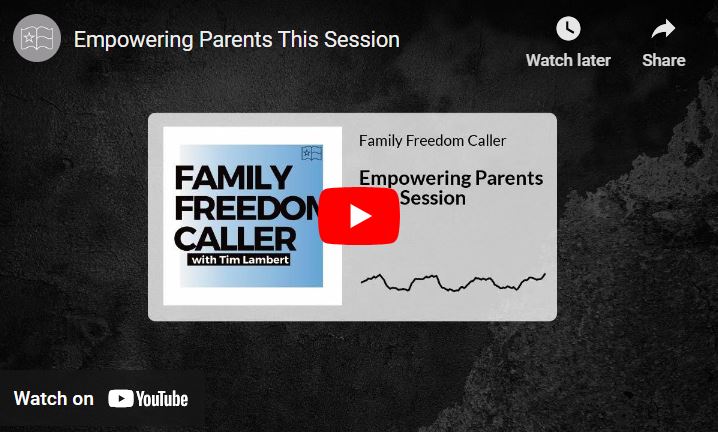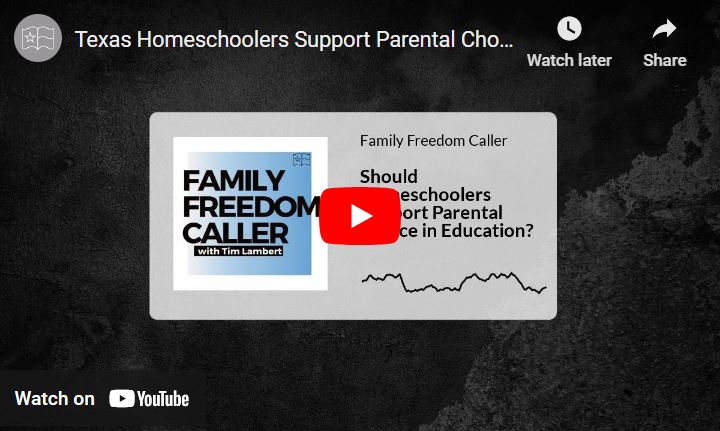I remember sitting at the kitchen table with one of my boys and discussing his struggle to stay focused. “Seriously?” I asked in amazement. “You can’t read from the top to the bottom without thinking about something else?” His answer was an emphatic, “No way!” What we determined was a propensity to wander in thought because the material wasn’t interesting enough to engage him. Who knew that the economic system in Europe wasn’t engaging? After all, he could sit quietly and look at books about guns or animals all day long. To be honest, I can’t say that I blame him. I am reminded, however, of the many times I have wondered if my boys struggle with Attention Deficit Disorder (ADD). You hear parents talk about ADD all the time. Often, children are diagnosed unnecessarily or struggle with the disorder, but have not been properly diagnosed. As our family struggles with staying on task, I ask myself what else can be done to encourage peace.
For those of you who also wonder if your children struggle through no fault of their own, I am excited to share an article by Dianne Craft, a keynote speaker at the 2016 THSC Arlington Convention.
Is It Really ADD?
By Dianne Craft, MA, CNHP
“Kids act how they feel”
Dr. Sydney Walker III, MD, The Hyperactivity Hoax
When we look at a child or teen who either has ADD (Attention Deficit Disorder) or ADHD (Attention Deficit Hyperactivity Disorder), it is easy to see the behavior that produced that label. The majority of kids, teens, and adults who struggle with this issue have never been “officially” diagnosed. All they know is that they have to work harder to remain focused on uninteresting tasks (like academics or rote work). Follow-through is so difficult for them. They often struggle in academics, even though they are bright and “trying.” They just lose track of assignments and test dates. They often feel like a failure. This is the observable behavior.
Is there more going on? While we focus on the difficulty attending to a task, we tend to overlook the other symptoms, both behavioral and physical, that often go along with this difficulty. They are often kids and teens whose nervous systems are in disequilibrium. Sometimes they have Sensory Processing Disorder symptoms of varying degrees that really are the cause of the inattention. They are so “inwardly focused” on the physical uneasiness that they feel that they cannot expend much energy remaining focused on a topic.
The “Gut” of the Matter
In his ground breaking book, The Second Brain, Dr. Michael Gershon, MD, found that 95 percent of the calming, focusing neurotransmitter, Serotonin, is manufactured in the bowel. Without enough of this important neurotransmitter, not only is attention and focus more difficult but so is mood regulation, sleep, and a sense of well-being. The gut truly is the “second brain.”
[bctt tweet=”It’s not all in their head. It’s in the gut too. #IsitADD? #homeschooling”][bctt tweet=”The gut truly is the second brain. #IsItADD? #homeschooling”]
Dr. William Crook, MD, found that 85 percent of children who have antibiotics for repeated ear infections struggle with attention and behavior issues when they are older. In his book, Help for the Hyperactive Child, he recommends that parents use supplements and diet to help balance their child’s brain/body chemistry and thus make focusing so much easier for that child. The pediatrician Dr. Leo Galland, in Superimmunity for Kids, recommends this balancing for his young patients, also.
In our bowel, we have both yeast/fungus and healthy bacteria. When a mother takes an antibiotic while she is pregnant or the baby or child takes an antibiotic, the yeast in the intestines begins to overgrow because the good bacteria in the gut is reduced or eliminated right along with the bad bacteria that is causing the ear or other infections. When this yeast or fungus overgrows, it releases a toxin called acetaldehyde. This toxin irritates the child’s nervous system and often manifests as many different types of behavior and attention issues. It also depletes the body of calming minerals like magnesium. Low magnesium is one of the causes of sensitivity to loud noises. Dr. Orian Truss, MD, author of The Missing Diagnosis, talks of this phenomenon also. In teenagers, he says it can even look like a depression or “surly,” rebellious behavior.
It has been found that children can have a yeast overgrowth without having taken antibiotics if they eat mainly carbohydrates and sweets. These foods directly feed the yeast in the body, causing the same intestinal upset that antibiotics or steroids would do.
One Mom’s Experience
Let’s follow one mom’s journey helping her son with ADD. I will quote her email to me. It is very enlightening.
“We would never have thought that our son Steven’s ADD behavior was a result of an upset gut!
[bctt tweet=”Helping the whole child, including the gut, improves behavior. #homeschooling #IsitADD?”]
Yesterday we finished the three month yeast/fungus program for both of our boys and we saw SO many positive changes! We noticed it especially with our 10-year-old, Steven. We heard you speak about antibiotic use and the correlation between that and attention and sensory issues. It all made so much sense. He was on antibiotics when we got him at nine months old. When we looked at your checklist, we saw that he struggled with:
- Inattention (typical ADD-like behavior)
- Anxiety
- Sensitivity to loud noises
- Nervousness in large groups
- Anger/irritability/aggression
- Difficulty falling asleep (night terrors)
- Mood swings
- Leg pains
- Constipation
- Stomach aches . . . very picky eater
- Antibiotic use
- Craved carbs and sweets, a ‘carbivorez’ as you stated
The only symptoms he didn’t have were athlete’s foot, eczema, or bed wetting.
After we started the simple supplement and diet program, we noticed huge improvements in his sleep in just three weeks!
His mood swings have improved a ton, as well as his anxiety. Constipation, stomach aches, and leg pains are gone. Mood swings and irritability have hugely improved, as well. Also, he is so much more comfortable in group settings than he used to be. He doesn’t plug his ears to keep out noises anymore! I can’t even give you enough examples. He is much more focused and gets directions so much easier. It’s like his ADD symptoms have reduced by 80 percent. Learning has become so much easier for him. He is also able to handle all transitions much better. I cannot say enough. My husband and I have looked at each other often over the past month in just complete awe.
Besides giving the nutritional supplements that we know balanced his gut ecology, we greatly reduced (not removed) sugar and carbs, like you said. It is amazing how we see a difference in our boys. We understand why life before was 100 mph when we fed the boys so much sugar and didn’t’ even realize it, in juices, cereals, pancakes, etc. We didn’t know that kids with yeast/fungus overgrowth react with so many behavior symptoms when given much sugar or carbs.
Thank you. You were right. My son’s attention problems were just a part of all the other areas he was struggling in. And it really had a physical cause, and was not just a ‘behavioral’ issue!”
Amber R. and boys
Three Solutions
One way to begin the gut/brain healing program is to:
- Take a good probiotic to plant back in good, helpful bacteria. (Many brands don’t work, we have found). We recommend Primadophilus with Bifidus by Nature’s Way or Healthy Trinity by Natren capsules. Chewable, liquid, or powder do not seem to give the same benefit. Capsules can be opened up and put into any food. For best results, give this three times a day for three months. (No matter what the bottle says). Preschoolers may take half or a fourth a capsule three times a day (check with a health professional).
- If your child has many of the symptoms listed above, after giving the probiotic for a week, continue and add Grapefruit Seed Extract tablets to reduce the colonies of yeast/fungus. We use the Nutribiotics brand. We do not use the liquid for internal use. If your child does not swallow pills, Paramicrocidin is a tasteless grapefruit seed extract in a capsule. Give three times a day for three months to rebalance an unhappy gut.
- Change the child’s (and whole family’s) diet. Reduce sugars and carbs (cereals and juices) that feed the yeast. Use less processed food and more fresh food. Have raw fruits and vegetables daily.
*Always check with your health professional before starting any vitamin or exercise program.
Steven’s mom went on to add other calming, healing supplements to her three-month program. If you are interested in more information about the extended, targeted nutritional program she used, look at the “Biology of Behavior” CD set with Study Guide at my website.
What is the bottom line? As Dr. Walker says, “Children act how they feel . . . look for the physical cause first.”
Dianne Craft has a Master’s Degree in Elementary and Special Education and is a Certified Natural Health Professional. She is president of Child Diagnostics, Inc. She has 25 years’ experience teaching bright, hardworking children and teens who have to work too hard to learn. To follow her targeted three-month nutritional intervention program for ADD and learning issues, see her Biology of Behavior CD set with week by week Study Guide. Interested in a Personal Internet Consultation? Just email her. Watch her YouTube clips for learning tips. Her Right Brain Reading Program, Spelling, and Math products have helped thousands of children. Download free Daily Lesson Plans using alternative teaching strategies. https://diannecraft.org
To hear more from Dianne Craft and her Child Diagnostics, Inc. team, join us for the 2016 Arlington Convention. Register now for the best pricing of the season; and remember, THSC member adults attend for free!
Don’t forget to share this with your friends via email, Facebook, or Twitter. THSC wants to do everything possible to help Texas families; and in so doing, we continue Keeping Texas Families Free.
I remember sitting at the kitchen table with one of my boys and discussing his struggle to stay focused. “Seriously?” I asked in amazement. “You can’t read from the top to the bottom without thinking about something else?” His answer was an emphatic, “No way!” What we determined was a propensity to wander in thought because the material wasn’t interesting enough to engage him. Who knew that the economic system in Europe wasn’t engaging? After all, he could sit quietly and look at books about guns or animals all day long. To be honest, I can’t say that I blame him. I am reminded, however, of the many times I have wondered if my boys struggle with Attention Deficit Disorder (ADD). You hear parents talk about ADD all the time. Often, children are diagnosed unnecessarily or struggle with the disorder, but have not been properly diagnosed. As our family struggles with staying on task, I ask myself what else can be done to encourage peace.
For those of you who also wonder if your children struggle through no fault of their own, I am excited to share an article by Dianne Craft, a keynote speaker at the 2016 THSC Arlington Convention.
Is It Really ADD?
By Dianne Craft, MA, CNHP
“Kids act how they feel”
Dr. Sydney Walker III, MD, The Hyperactivity Hoax
When we look at a child or teen who either has ADD (Attention Deficit Disorder) or ADHD (Attention Deficit Hyperactivity Disorder), it is easy to see the behavior that produced that label. The majority of kids, teens, and adults who struggle with this issue have never been “officially” diagnosed. All they know is that they have to work harder to remain focused on uninteresting tasks (like academics or rote work). Follow-through is so difficult for them. They often struggle in academics, even though they are bright and “trying.” They just lose track of assignments and test dates. They often feel like a failure. This is the observable behavior.
Is there more going on? While we focus on the difficulty attending to a task, we tend to overlook the other symptoms, both behavioral and physical, that often go along with this difficulty. They are often kids and teens whose nervous systems are in disequilibrium. Sometimes they have Sensory Processing Disorder symptoms of varying degrees that really are the cause of the inattention. They are so “inwardly focused” on the physical uneasiness that they feel that they cannot expend much energy remaining focused on a topic.
The “Gut” of the Matter
In his ground breaking book, The Second Brain, Dr. Michael Gershon, MD, found that 95 percent of the calming, focusing neurotransmitter, Serotonin, is manufactured in the bowel. Without enough of this important neurotransmitter, not only is attention and focus more difficult but so is mood regulation, sleep, and a sense of well-being. The gut truly is the “second brain.”
[bctt tweet=”It’s not all in their head. It’s in the gut too. #IsitADD? #homeschooling”][bctt tweet=”The gut truly is the second brain. #IsItADD? #homeschooling”]
Dr. William Crook, MD, found that 85 percent of children who have antibiotics for repeated ear infections struggle with attention and behavior issues when they are older. In his book, Help for the Hyperactive Child, he recommends that parents use supplements and diet to help balance their child’s brain/body chemistry and thus make focusing so much easier for that child. The pediatrician Dr. Leo Galland, in Superimmunity for Kids, recommends this balancing for his young patients, also.
In our bowel, we have both yeast/fungus and healthy bacteria. When a mother takes an antibiotic while she is pregnant or the baby or child takes an antibiotic, the yeast in the intestines begins to overgrow because the good bacteria in the gut is reduced or eliminated right along with the bad bacteria that is causing the ear or other infections. When this yeast or fungus overgrows, it releases a toxin called acetaldehyde. This toxin irritates the child’s nervous system and often manifests as many different types of behavior and attention issues. It also depletes the body of calming minerals like magnesium. Low magnesium is one of the causes of sensitivity to loud noises. Dr. Orian Truss, MD, author of The Missing Diagnosis, talks of this phenomenon also. In teenagers, he says it can even look like a depression or “surly,” rebellious behavior.
It has been found that children can have a yeast overgrowth without having taken antibiotics if they eat mainly carbohydrates and sweets. These foods directly feed the yeast in the body, causing the same intestinal upset that antibiotics or steroids would do.
One Mom’s Experience
Let’s follow one mom’s journey helping her son with ADD. I will quote her email to me. It is very enlightening.
“We would never have thought that our son Steven’s ADD behavior was a result of an upset gut!
[bctt tweet=”Helping the whole child, including the gut, improves behavior. #homeschooling #IsitADD?”]
Yesterday we finished the three month yeast/fungus program for both of our boys and we saw SO many positive changes! We noticed it especially with our 10-year-old, Steven. We heard you speak about antibiotic use and the correlation between that and attention and sensory issues. It all made so much sense. He was on antibiotics when we got him at nine months old. When we looked at your checklist, we saw that he struggled with:
- Inattention (typical ADD-like behavior)
- Anxiety
- Sensitivity to loud noises
- Nervousness in large groups
- Anger/irritability/aggression
- Difficulty falling asleep (night terrors)
- Mood swings
- Leg pains
- Constipation
- Stomach aches . . . very picky eater
- Antibiotic use
- Craved carbs and sweets, a ‘carbivorez’ as you stated
The only symptoms he didn’t have were athlete’s foot, eczema, or bed wetting.
After we started the simple supplement and diet program, we noticed huge improvements in his sleep in just three weeks!
His mood swings have improved a ton, as well as his anxiety. Constipation, stomach aches, and leg pains are gone. Mood swings and irritability have hugely improved, as well. Also, he is so much more comfortable in group settings than he used to be. He doesn’t plug his ears to keep out noises anymore! I can’t even give you enough examples. He is much more focused and gets directions so much easier. It’s like his ADD symptoms have reduced by 80 percent. Learning has become so much easier for him. He is also able to handle all transitions much better. I cannot say enough. My husband and I have looked at each other often over the past month in just complete awe.
Besides giving the nutritional supplements that we know balanced his gut ecology, we greatly reduced (not removed) sugar and carbs, like you said. It is amazing how we see a difference in our boys. We understand why life before was 100 mph when we fed the boys so much sugar and didn’t’ even realize it, in juices, cereals, pancakes, etc. We didn’t know that kids with yeast/fungus overgrowth react with so many behavior symptoms when given much sugar or carbs.
Thank you. You were right. My son’s attention problems were just a part of all the other areas he was struggling in. And it really had a physical cause, and was not just a ‘behavioral’ issue!”
Amber R. and boys
Three Solutions
One way to begin the gut/brain healing program is to:
- Take a good probiotic to plant back in good, helpful bacteria. (Many brands don’t work, we have found). We recommend Primadophilus with Bifidus by Nature’s Way or Healthy Trinity by Natren capsules. Chewable, liquid, or powder do not seem to give the same benefit. Capsules can be opened up and put into any food. For best results, give this three times a day for three months. (No matter what the bottle says). Preschoolers may take half or a fourth a capsule three times a day (check with a health professional).
- If your child has many of the symptoms listed above, after giving the probiotic for a week, continue and add Grapefruit Seed Extract tablets to reduce the colonies of yeast/fungus. We use the Nutribiotics brand. We do not use the liquid for internal use. If your child does not swallow pills, Paramicrocidin is a tasteless grapefruit seed extract in a capsule. Give three times a day for three months to rebalance an unhappy gut.
- Change the child’s (and whole family’s) diet. Reduce sugars and carbs (cereals and juices) that feed the yeast. Use less processed food and more fresh food. Have raw fruits and vegetables daily.
*Always check with your health professional before starting any vitamin or exercise program.
Steven’s mom went on to add other calming, healing supplements to her three-month program. If you are interested in more information about the extended, targeted nutritional program she used, look at the “Biology of Behavior” CD set with Study Guide at my website.
What is the bottom line? As Dr. Walker says, “Children act how they feel . . . look for the physical cause first.”
Dianne Craft has a Master’s Degree in Elementary and Special Education and is a Certified Natural Health Professional. She is president of Child Diagnostics, Inc. She has 25 years’ experience teaching bright, hardworking children and teens who have to work too hard to learn. To follow her targeted three-month nutritional intervention program for ADD and learning issues, see her Biology of Behavior CD set with week by week Study Guide. Interested in a Personal Internet Consultation? Just email her. Watch her YouTube clips for learning tips. Her Right Brain Reading Program, Spelling, and Math products have helped thousands of children. Download free Daily Lesson Plans using alternative teaching strategies. https://diannecraft.org
To hear more from Dianne Craft and her Child Diagnostics, Inc. team, join us for the 2016 Arlington Convention. Register now for the best pricing of the season; and remember, THSC member adults attend for free!
Don’t forget to share this with your friends via email, Facebook, or Twitter. THSC wants to do everything possible to help Texas families; and in so doing, we continue Keeping Texas Families Free.











